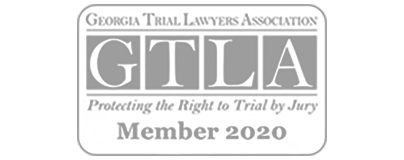Home | Glossary of Personal Injury Terms | Negligence
Negligence
Negligence is a term frequently encountered in legal discussions, particularly in the realm of personal injury law. While it may generally imply carelessness, the concept encompasses a variety of subtleties that are crucial for establishing liability in injury claims. When an individual suffers harm due to another’s failure to act responsibly, pursuing a personal injury claim for damages often becomes a pathway for justice.
Defining Culpable Mental States
To establish liability in personal injury cases, it’s essential to understand different culpable mental states, which include:
- Negligence. This refers to a failure to exercise reasonable care, such as disregarding traffic signals.
- Gross Negligence. A more severe form of negligence, this can include acts like driving under the influence, where a person’s actions demonstrate a blatant disregard for safety.
- Intentional Misconduct. This involves purposeful actions aimed at causing harm, such as aggressive driving scenarios that lead to accidents.
Certain types of personal injury claims, like workers’ compensation and product liability cases, do not necessitate proving any culpable mental state, focusing instead on the harm caused.
The Four Pillars of Negligence
Most personal injury cases hinge on the principle of negligence, which requires the plaintiff to substantiate four fundamental elements through a standard known as “preponderance of the evidence.”
Duty of Care
The foundation of negligence lies in the duty of care, which mandates that individuals act with a reasonable level of caution in their everyday activities. This encompasses adhering to traffic laws, maintaining safe premises for visitors, and avoiding actions that could unreasonably endanger others.
Professionals, such as doctors or engineers, are held to a heightened standard of care, given their specialized knowledge. For instance, an emergency medical technician is expected to provide higher-level care than a layperson offering basic first aid.
Experts may be needed to clarify the specific duty of care relevant to a situation, such as determining a physician’s responsibilities in a medical malpractice case.
Breach of Duty
A breach occurs when an individual fails to meet the established duty of care. This may involve either an action taken that should not have been, or a failure to act when required. In professional contexts, an expert may be necessary to establish whether a breach has occurred.
Damages
In legal parlance, “damages” refers to the harm that the legal system can redress. For a personal injury claim to succeed, the plaintiff must demonstrate that they suffered actual damages, typically manifesting as physical injuries or illnesses.
Once physical harm is established, claimants may also seek compensation for additional losses, such as:
- Economic losses
- Pain and suffering
- Emotional distress
It is important to note that in jurisdictions like Georgia, claims based solely on emotional distress, absent physical injury, are not viable.
Causation
Establishing causation is crucial in linking the defendant’s actions to the plaintiff’s damages. This involves proving two distinct forms of causation:
- Cause in Fact. This straightforward concept asserts that the harm would not have occurred if not for the defendant’s actions. For example, if a driver runs a red light and collides with another vehicle, causing injury, the cause in fact is evident.
- Proximate Cause. This more complex aspect requires demonstrating that the harm was a foreseeable result of the defendant’s misconduct. If the connection is too tenuous, proving proximate cause may become challenging, potentially jeopardizing the claim.
Comparative Fault in Multi-Party Incidents
In accidents where multiple parties share fault, Georgia’s comparative fault law comes into play. This legal framework allows for the assessment of fault among the involved parties, assigning a percentage of liability to each.
Compensation is adjusted based on these fault percentages. For instance, if a party is deemed 25% at fault, their compensation will be reduced by that same percentage. However, if a party is found to be 50% or more responsible for the accident, they are barred from recovering any damages.

GEORGIA PERSONAL INJURY LAWYER NEAR ME
The Importance of a Seasoned Personal Injury Lawyer in a Negligence Case
Engaging a seasoned personal injury lawyer can significantly enhance the likelihood of a favorable outcome in your case. These professionals can assist in establishing the defendant’s liability and potentially increasing the compensation awarded.
While no attorney can promise specific results, the expertise of a skilled lawyer can substantially improve your chances of success in navigating the complexities of personal injury claims.
For further insights into how a personal injury attorney in Georgia can safeguard your rights, consider reaching out to The Jewkes Law Firm at (770) 771-5130.
GET A FREE CASE REVIEW
PRACTICE AREAS
Frequently Asked Questions?
Do I need a personal injury attorney?
The Jewkes Firm is well-versed in effectively challenging major insurance companies on your behalf to secure the highest settlement permissible by law. Our primary objective is to ensure your optimal recovery. It is only after this point that we assess the worth of your case.
What is the deadline for filing an injury case in Georgia?
The timeframe for filing an injury case, also known as the statute of limitations, can vary significantly. As per OCGA §9-3-33, you are granted a two-year period from the date of your injuries or the passing of a family member to initiate your personal injury claim.
What is the cost to hire a personal injury attorney?
There is no upfront cost associated with hiring a personal injury lawyer. Our fees are based on a percentage of your settlement, meaning you only pay if we successfully recover compensation. Our top priority is ensuring your well-being and helping you return to your normal life.
What damages can you recover from a personal injury?
A personal injury lawyer aims to establish negligence and seek restitution for the harm caused by the liable party. Additionally, you may be entitled to compensation for funeral costs, medical expenses, and income lost if you are a family member of someone who died as a result of an injury.
Free Case Evaluation











